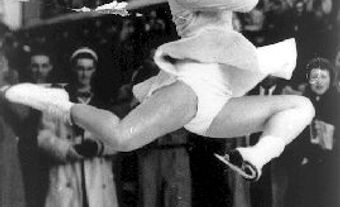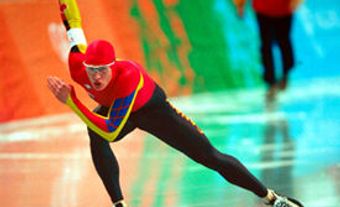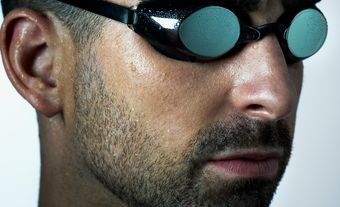This article was originally published in Maclean's Magazine on March 11, 1996
Hockey Championships End in Violence
The debacle began with only 31.6 seconds left in the overtime period. The University of Moncton Blue Eagles, the reigning Canadian collegiate hockey champions, were down one game to nil in their best-of-three divisional final against the University of Prince Edward Island Panthers. In Game 2, played on Feb. 24 in front of 2,000 spectators in Charlottetown, the teams had fought to a 2-2 tie during regulation play. But as the first overtime period neared its end, UPEI's Tyler Ertel rifled a wrist shot into the Blue Eagles' net just under the crossbar. The puck popped back out, and referee Brian Carragher did not signal a goal. But after consulting with the goal judge, he changed his mind, granting the Panthers a 3-2 victory - and ending the Blue Eagles' hopes of recapturing the title. And then all hell broke loose.
In the melee that followed, the four-time national champion Blue Eagles exhibited the competitive spirit at its worst. Moncton goalie Pierre Gagnon put his arm around Carragher and said: "You blew it - you choked." Seven or eight other Moncton players swarmed the referee, backing him into a corner and taking turns throwing punches. According to witnesses, Carragher was twice speared in the groin, and amid the confusion, Moncton assistant coach Patrick Daviault pulled a metal net-mooring out of the ice and threw it, shattering a pane of rinkside Plexiglas. By the time Charlottetown and UPEI campus police restored order 20 minutes later, the Blue Eagles' reputation lay in tatters. "If I had an explanation for what happened, I would have prevented it," said Moncton head coach Pete Belliveau. "We can say we were frustrated with the decisions of the officials all evening, but that is not an excuse."
The Blue Eagles' players themselves eventually issued an apology, saying that some of them had "lost control of their emotions." But the fallout from the assault on Carragher, who was not seriously injured, continued throughout last week. The Atlantic Universities Athletic Association began an investigation of the incident, and could suspend the Blue Eagles for at least a season. U of M officials shut down the hockey program, at least until mid-April, when an independent review will determine whether the Blue Eagles will withdraw from competition for a year. Daviault was relieved of his duties as assistant coach. And four players - Mathieu Bibeau, Sylvain Ducharme, Pierre Gagnon and Frantz Bergevin-Jean - were suspended from all sporting activities at U of M. But the players and team staff involved could face more serious penalties: Charlottetown police said charges of assault and damage to property were imminent.
Although video replays showed that Ertel's shot had probably entered the Eagles net, some Moncton fans contended that Carragher had been biased. U of M student Jason Lewis, for one, pointed out that the referee's brother was once a captain of the UPEI hockey team. "I totally agree with suspensions and fines that will be handed out," said Lewis while sitting in the campus bar, Le Kacho. "But I also think that they should look into the officiating." For most students at the campus of 5,100, however, the Blue Eagles' failure to uphold a tradition of sportsmanship was simply a black mark on the university's reputation. "It was completely unacceptable," said student union president Michelle LeBlanc, 21. "Because people outside the university associate the Blue Eagles with U of M, it will have negative repercussions on the entire university for some time."
Maclean's March 11, 1996

 Share on Facebook
Share on Facebook Share on X
Share on X Share by Email
Share by Email Share on Google Classroom
Share on Google Classroom


